Disease outbreaks are likely after floods.
According to Dr. Phung Thi Thuy Hang, Deputy Head of the Ophthalmology Department, Bach Mai Hospital ( Hanoi ), heavy rain causes flooding, brings dirt, toxins, and a polluted environment, which is the cause of infectious eye diseases, of which conjunctivitis is a very common disease.
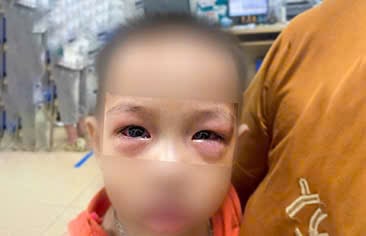
Conjunctivitis is highly contagious, especially in communities with poor water quality.
Photo: DOCUMENTS OF THE NATIONAL CHILDREN'S HOSPITAL
Conjunctivitis is highly contagious and can cause large epidemics, especially in communities with a lack of clean water. It can also flare up after floods.
The causative agents are bacteria and viruses. Among them, the bacteria that can cause acute conjunctivitis are: pneumococcus, staphylococcus, streptococcus. The most common virus that causes conjunctivitis is adenovirus, which often spreads strongly, causing large epidemics, due to its respiratory transmission and ability to survive for a long time in the environment.
In addition, allergies are also the cause of conjunctivitis. When exposed to allergens, the eyes quickly become red and itchy, and the patient often rubs his eyes, which is the cause of secondary infection.
Red River flood recedes slowly: Flood risk persists in many places
Symptom
Doctor Phung Thi Thuy Hang said: After 2-3 days of incubation (from the time of contact with the source of infection), the patient will show signs of itchy eyes, red eyes, glare, fear of light, watery eyes and a lot of eye discharge. The patient has difficulty opening his eyes due to a lot of discharge when waking up. At first, only one eye is affected, after a few days it appears in the other eye.
When examining the patient, the doctor will see red and swollen eyelids, conjunctival congestion, edema, and a lot of discharge on the eyelid margins and conjunctival surface. In some cases, there may be subconjunctival hemorrhage (bleeding). In severe cases, conjunctivitis causes damage to the cornea, causing the patient's vision to decrease significantly and the condition lasts for many months.
In addition, the patient may have a mild fever, runny nose, swollen lymph nodes in front of the ear or jaw angle, sore throat, and swollen tonsils.
"Conjunctivitis in children is often severe because the child's local immunity is weak, the soft tissues around the child's eyes are loose, so they are susceptible to severe swelling reactions. Parents often take their children to the doctor because they see swollen, red eyes, and a lot of discharge. With children, special attention is needed because they cannot speak, and crying makes it difficult to apply eye drops and examine their eyes. Treating conjunctivitis in children is more complicated and takes longer than in adults, requiring the effort of both medical staff and caregivers," Dr. Hang added.
Disease prevention
Conjunctivitis is transmitted through tears and discharge that contain many pathogens. People with conjunctivitis often rub their eyes and then touch shared objects in the home, workplace, school, etc., causing others to become infected when using those objects.
In addition, the disease can be transmitted through public swimming pool environments.
In normal people, tears are drained down the nose through the lacrimal system. When conjunctivitis occurs, tears containing pathogens are drained down the nose and throat. When the patient talks or sneezes, the nasal secretions are sprayed into the air, causing illness to others.
People with conjunctivitis need to stay home from school, work, and avoid crowded places to avoid infecting others.
Discontinue wearing contact lenses for several days when you have acute conjunctivitis. Use separate items and avoid rubbing your eyes. Wash your hands before and after applying eye drops.
When you must use shared items, wash your hands with soap first. Do not throw away used cotton swabs for eye irrigation. Wash your face towels regularly with soap and dry them in the sun.
After recovery, glasses should be washed with soap to avoid reinfection.
Clinics need to clean hands and sterilize instruments properly.
Clean environment, clean house.
(Source: Department of Ophthalmology, Bach Mai Hospital)
Source: https://thanhnien.vn/hoi-chung-viem-ket-mac-cap-mua-mua-lu-185240912191158712.htm



![[Photo] Unique art of painting Tuong masks](https://vphoto.vietnam.vn/thumb/1200x675/vietnam/resource/IMAGE/2025/11/14/1763094089301_ndo_br_1-jpg.webp)

![[Photo] Unique architecture of the deepest metro station in France](https://vphoto.vietnam.vn/thumb/1200x675/vietnam/resource/IMAGE/2025/11/14/1763107592365_ga-sau-nhat-nuoc-phap-duy-1-6403-jpg.webp)






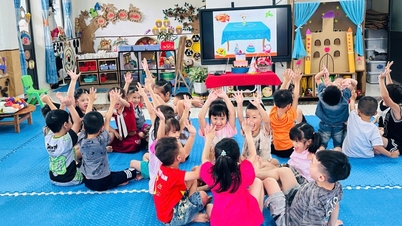
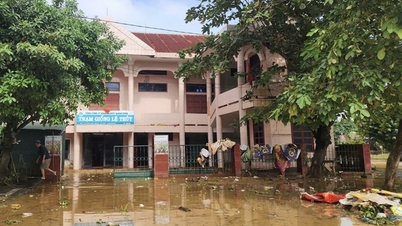



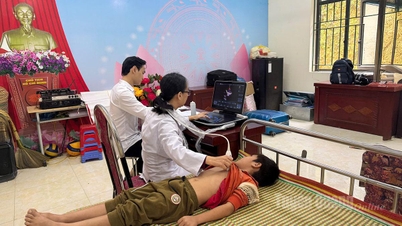

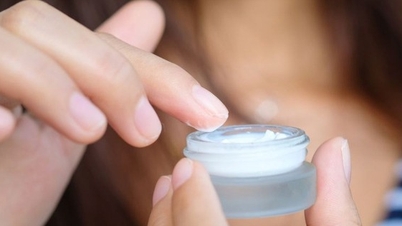


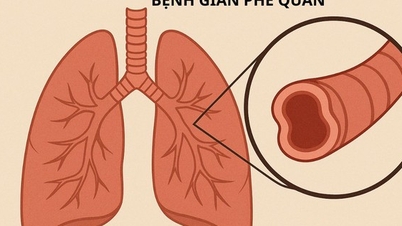
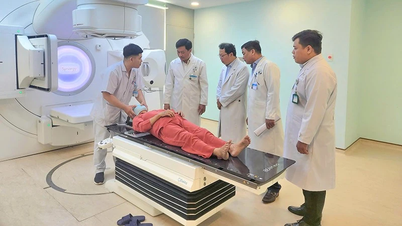












![[Photo] Special class in Tra Linh](https://vphoto.vietnam.vn/thumb/1200x675/vietnam/resource/IMAGE/2025/11/14/1763078485441_ndo_br_lop-hoc-7-jpg.webp)






































































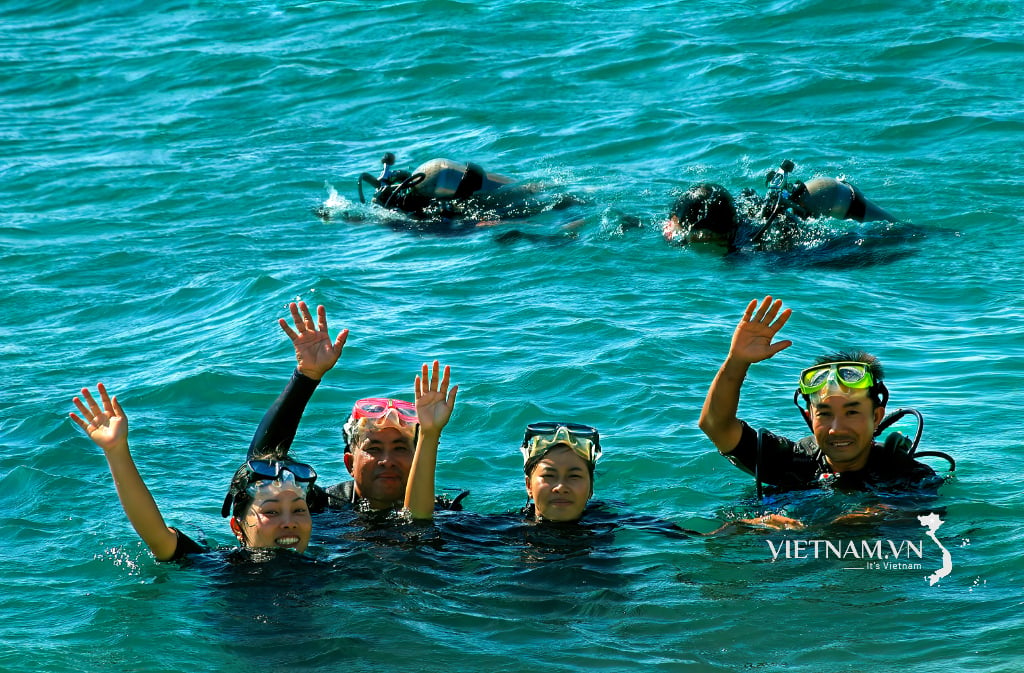
Comment (0)